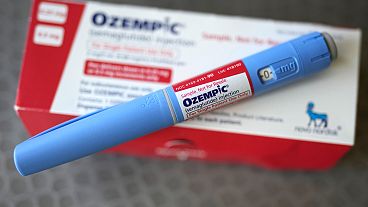Younger people are more likely to develop cancer than prior generations, underscoring the elevated risks in childhood and young adulthood, according to new research from the US.
Millennials and Gen Xers are more likely to develop 17 forms of cancer than older generations, according to a new study in the journal Lancet Public Health that suggests exposure to carcinogens and other risk factors is greater today than in the past.
Researchers from the American Cancer Society (ACS) and the University of Calgary in Canada analysed incidence data for 34 types of cancer among nearly 24 million people, and death data for 25 types of cancer for more than 7 million people, born between 1920 and 1990.
They found that the 1990 birth cohort had much higher cancer rates than earlier generations, ranging from a 12 per cent higher incidence of ovarian cancer to a 169 per cent higher incidence of endometrial cancer compared with the groups with the lowest rates.
The 1990 group also saw incidence rates that were two to three times higher than the 1955 cohort for cancers of the small intestine, thyroid, kidney and renal pelvis, and pancreas.
While death rates either fell or stabilised for most types of cancer among younger generations, younger people were more likely to die from endometrial cancer, liver and intrahepatic bile duct cancer in women, as well as gallbladder and other biliary, testicular, and colorectal cancers compared with baby boomers.
The elevated rates among Millennials and Gen Xers suggest that the US cancer burden will continue to grow, “halting or reversing decades of progress against the disease,” Ahmedin Jemal, senior author of the study and senior vice president of the ACS’s surveillance and health equity science team, said in a statement.
About 20 million people were diagnosed with cancer in 2022, and 9.7 million people died, according to global estimates from the World Health Organization (WHO).
The most common forms are lung cancer, breast cancer among women, colorectal cancer, prostate cancer, and stomach cancer.
Scientists already knew that younger generations were at higher risk for some cancers, but the new study adds eight new cancers to the list: a type of stomach cancer called cardia gastric cancer, small intestine cancer, oestrogen receptor-positive breast cancer, ovarian cancer, liver cancer in women, non-HPV-associated oral and pharynx cancer in women, anal cancer in men, and Kaposi sarcoma cancer in men.
While it’s not entirely clear why cancer levels are higher among younger generations, it’s likely due in part to risks during childhood or as young adults, study authors said.
Possible culprits include exposure to pollutants and other environmental toxins, obesity, sedentary lifestyles, unhealthy diets high in saturated fats and ultra-processed foods, and poor sleep habits.
People born in the same generation “share unique social, economic, political, and climate environments, which affect their exposure to cancer risk factors during their crucial developmental years,” Hyuna Sung, the study’s lead author and a senior principal scientist of surveillance and health equity science at the ACS, said in a statement.
The analysis included people in the US, so the results might not directly apply elsewhere. However, given other countries are also grappling with generational shifts in environmental and lifestyle trends, the findings could offer clues as researchers try to identify the underlying causes of the disease.
“The data highlights the critical need to identify and address underlying risk factors in Gen X and Millennial populations to inform prevention strategies,” Jemal said.















